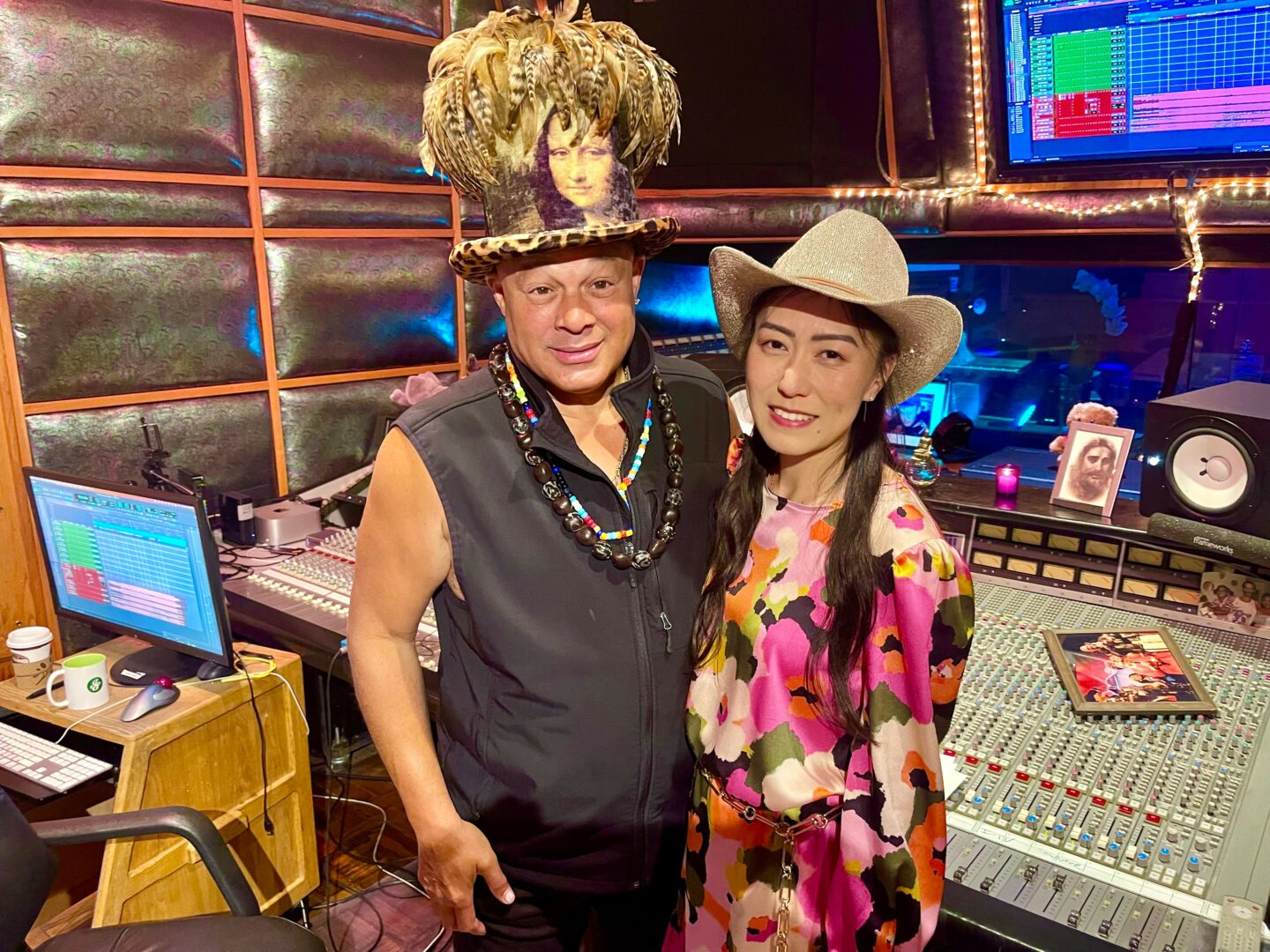Alright – so today we’ve got the honor of introducing you to Miist. We think you’ll enjoy our conversation, we’ve shared it below.
Miist, we are so appreciative of you taking the time to open up about the extremely important, albeit personal, topic of mental health. Can you talk to us about your journey and how you were able to overcome the challenges related to mental issues? For readers, please note this is not medical advice, we are not doctors, you should always consult professionals for advice and that this is merely one person sharing their story and experience.
To me, I know the word trauma is overused, but in my situation, it is real. It’s very real in many ways and
in my life I spent a lot of time avoiding the triggers, but until I became a mom, I realized I could no longer
avoid my triggers anymore because most of my triggers of the trauma were from my childhood and
raising my daughter was watching myself growing up again. It was wonderful, but it was also full of
triggers because she is a mini-me. That’s when I started really realizing I needed to work on myself. I had
talked to mental health professionals and read many self-help books, but around the same time, I started
discovering my songwriting ability, and that really helped me with my self-help journey significantly
, because it is wonderful self-therapy. After years of working on it, even though I still have my little
episodes from time to time, I’m already able to manage it very well. I would say, and it was hard work,
but it is totally worth it for me to save my family and to not repeat the things that caused me trauma as
a child. I hope not to pass those things along to my daughter, and I want to set a good example for her. I
want to show her that even though we could come from a traumatic background like mine (and her’s
before I came into her life), you can change it.

Great, so let’s take a few minutes and cover your story. What should folks know about you and what you do?
Well, I guess I’m known as a singer/songwriter with a very unique story. I learned about my musical gift only a few years ago, when I was 34 years old, and that was after going through a challenging life, including abandonment and a terminal cancer diagnosis at 27 years old, which took 60% of my liver. I want to be clear that those things helped me become who I am, so I appreciate the good things they showed me, despite the pain they caused. It gave me clarity as to what is important and why, and what I’m willing to fight for as well as what I am not. So since then, it has been a whirlwind, to say the least.
I was discovered by my now dear friend Narada Michael Walden (Billboard Top 10 All-Time Producer), who produced my first album, “The Songs from the Living Room,” in late 2024. I then had multiple Billboard-charting hits, won some awards, and set some new records, which was fun, but more importantly, gave me a voice that I want to use to help others. So this year, I released a global song, “Could You Lend Me a Smile,” simultaneously in 15 languages and versions. I was told recently that it is a new world record, and it has given me the opportunity to share my message with millions of people around the world, which is more important to me than the music itself.
So I’ll back up a bit here and explain…
It started with reading a story about a young man in Tokyo, Japan, who died alone in his own apartment and was found by his neighbors months later. He had a job, a life, and property, but no friends. No one to check on him. That story really affected me. I felt for him. I felt the loneliness as I started imagining him living in such a busy city, passing by thousands of people every day he went out. I couldn’t help but wonder if any one of those thousands of people had made eye contact with him and lent him a smile, even just for a moment—maybe that would have changed his life, and he would still be with us today.
When I feel a strong emotion, it comes out in music. I want to know how they felt and what they went through, so I put myself into their life and then the music just happens. Whether it is happiness or sadness, depression or dark thoughts, hope or dreams—I want to write about it. I need to. In this case, the song that came out was “Could You Lend Me a Smile?” A smile is such a small action that all of us can do, but that smallest of actions has an immediate effect on the world around us. It helps us and others feel better and changes the world in a meaningful way.
This global Smile Project is what I want to be known for. Actually, that’s not quite correct. I don’t want to be known as much as I want people to know and hear the message. If I can be the voice of that message, I’m willing—but it is not required. If someone with a larger voice will help me, I’m all for it! But even now, I think that is what I am about. The Smile Song has affected millions of people, and I hope it has changed the way some of those live their lives. That would be meaningful to me.
I get asked why so many languages. And the reason is that for me, English is a second language. I speak fluently, but if I really want to feel something deeply or have an emotional conversation, that conversation is best in my heart language. So for this song, we wanted to reach people’s hearts. In order to do that, the message needed to go beyond English. The pandemic of loneliness that we live in is global, not just in the USA. That is why we had the song adapted, translated, and curated by people and artists from 15 different cultures and countries.
Artists with over 60 Grammys and nominations have worked with me on the Smile Project, and we simultaneously released it on May 9. That is an accidental world record for an original song released simultaneously on audio and video, as there are also 15 original music videos for “Could You Lend Me a Smile?”
There are a total of 6 important songs for this year’s EP. Each touches on very difficult subjects like depression and how our world has become so disconnected, and the songs offer very simple solutions and actions that we can do anywhere, anytime—even right now—to start changing our world. All 6 songs are part of the Smile Project that exists along with my non-profit, World Smile Initiative. The mission behind the Smile Project is “15-second actions that can change your world.”
My new podcast, “Make Me Smile with Miist,” is an extension of the Smile Project, as it gives me a platform to explain the details of each song and the issues that were behind the writing. Each of the 48 episodes helps explain how we, as a human family, got to this point—and how we can take back control with simple, powerful, and fulfilling actions to change the world around us. I like to think of Make Me Smile like a music TED-like talk, with humor, stories, and simple calls to action that help us regain control of our story.
I find that people are so overwhelmed now that they need something simple and in front of them to remind them that they control how they walk out into the world each day. So we created the Kindness Kube™.
My husband and I started the World Smile Initiative, a non-profit organization that produces the Kindness Kube™ and supports the Global Smile Project. The foundation provides the Kindness Kube™ on a donation basis. It ships in a flat envelope that can be delivered anywhere the post office delivers. It offers us a gentle reminder to do the smallest actions each day. When you open up the envelope, it pops open into a three-dimensional cube that has these nice little reminders on it like “Smile,” “Remind Someone You Love Them,” “Be Silly”… You can put it on your vanity or nightstand, and maybe in the morning you pick one of the actions as the goal of today. Tell yourself, Today I will spend 15 seconds just to do this one thing. And when you come back home at night, you’ll see the Kube again, and it will remind you how you did.
I want the Smile Project to last a lifetime and beyond. My goal is for it to remind all of us how simple things matter—and they change the world around us.

Looking back, what do you think were the three qualities, skills, or areas of knowledge that were most impactful in your journey? What advice do you have for folks who are early in their journey in terms of how they can best develop or improve on these?
What really saved me, as a person who lived in trauma, was understanding I was actually living in fear. I was controlled by fear, and I did everything to avoid what I was afraid of from happening. It was a horrible way to live. I was living in the past, I wasn’t really living in the present, and what actually saved me was one day I realized if I kept living this way, I was going to lose my family. But my love for my family is bigger than my fear. Once I realized that, I decided I was going to work on myself instead of running away from it. So I think love was so important, either love for someone or love for something that’s finally bigger than the biggest thing we’re afraid of, that can save us.
And then I would say persistence. Don’t give up trying. While there is no guarantee for success, there is a guarantee for failure, lots of failures from time to time. We can’t just give up, because then it is a real failure. Failing is never a true failure. Giving up is. Sometimes it takes longer to get out, but I keep trying.
And the third thing I would say is kindness. I am not saying it in a very corny way. I mean kindness to ourselves. For me, a big reason why I kept failing was I was very harsh on myself. I wouldn’t accept any compliments on the small achievements that I made. Instead, I would pick on the things that I could have done better. That mentality was a big reason why I couldn’t improve. So once I started showing more kindness to myself, I could actually see progress. The progress had always been there, but now I could acknowledge it.

Any advice for folks feeling overwhelmed?
When I feel overwhelmed, well, I’ll first tell you what I normally do, which isn’t helpful. It is actually something we should avoid doing. When I feel overwhelmed, naturally, I procrastinate. When I have a lot of tasks and projects going on at the same time, the more I have to do, the more I avoid doing it, which causes more pressure later. That’s what I look out for these days and really try to avoid doing that.
Amazingly, these days while I’m juggling all my new important music, my podcast, “Make Me Smile with Miist,” my World Smile Initiative, all the media (which I appreciate 😊), sometimes when I’m overwhelmed, I remind myself: don’t forget about taking breaks. I need to take breaks, but I don’t mean going on my phone and spending hours on unproductive social media apps. When I need to take a break to recharge, I go to nature or to my family to get more connected with them. And when I come back to what I actually need to work on—and with all the projects there—I actually feel I can better handle the stress and see things clearly on this incredible journey I am on.
A lot of times, I think it is about challenging our own thinking pattern. What we used to do might be the exact same thing that’s causing us a lot of anxiety and stress. When we start challenging it, we can see the better way to handle it. After that, the point is just practice and getting into the pattern of doing the positive habits instead of the negative. Of course, that change makes me feel better about myself too.
Contact Info:
- Website: https://www.miistthesinger.com/
- Instagram: https://www.instagram.com/miistthesinger/?hl=en
- Facebook: https://www.facebook.com/miistthesinger/
- Twitter: https://x.com/MiistTheSinger
- Youtube: https://www.youtube.com/@miistthesinger
- Other: https://www.tiktok.com/@miistthesinger

Image Credits
First image at piano in pink dress: Andrew Ficke
Miist & Narada Michael Walden: AWS
Miist at piano in black: Kevin Li
so if you or someone you know deserves recognition please let us know here.




